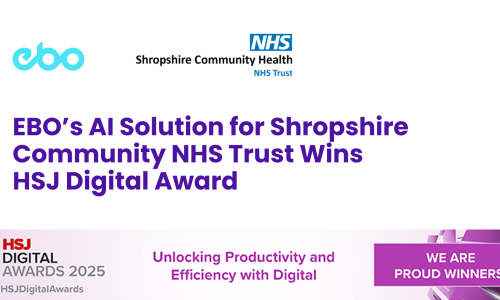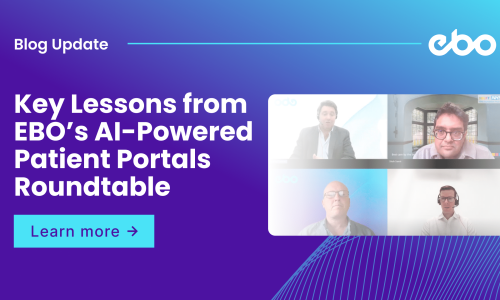RPA provides a tremendous advantage for the processing of internal workflows within health organisations. Irrespective of service, specialty or application, there are always a significant number of processes which automation can support and create efficiencies in how information is processed.
Today, expectations are rising on how the information initially requested is collected and how patients expect to be treated when it comes to interacting with their health providers. Such expectations have led to a growing weariness in the standardised one-size-fits-all information collection experience. Data forms and information websites are failing to meet some fairly standard criteria in usability and contextual awareness. This means patients need to be comfortable with information systems, online form filling and are having to repeat data entry multiple times.
This is where a contextually and data aware Virtual Assistant can add so much value. Having an AI enabled conversation which would show empathy (contextually aware) as well as sensitivity over data reuse and conditional analysis, can provide a human level of interaction, creating the ideal scenario of automating information collection and processing while retaining important human traits which are so critical within the Healthcare industry.
An example of EBO’s Virtual Assistant guiding a patient through the completion of the HPV vaccine eConsent form.
A well-developed EBO Virtual Assistant can provide the initial interface for a service orientated, patient focused RPA implementation, thereby supporting quick and effective: registration of requests for service, processing of data, setting of appointments and many other simple processes which currently take too much time and effort. Regular contact with patients as requests are processed are also within the remit of well-developed virtual assistants. Triggers from the RPA of: status changes, information becoming available (lab results etc) or confirmations (appointment letters) can all be communicated immediately to patients on communication channels of their choosing.
Fusing the strengths of a mature RPA platform to a human like presentation layer brought about by an EBO Virtual Assistants represents a step change in how we can interact with our health providers. A channel of our choosing, at a time and location that makes sense to our lifestyle and processed end to end by process automation. This interaction is then topped off by a contextually and sentiment sensitive Virtual Assistant which allows a fluid conversation to take place.
Human like interactions while gaining the benefits of scalable automation sounds like an alliance which would provide best case scenarios to all.
Find out more about how EBO uses RPA to automate patient processes and develop digital patient pathways to make healthcare highly accessible and truly patient centred.

